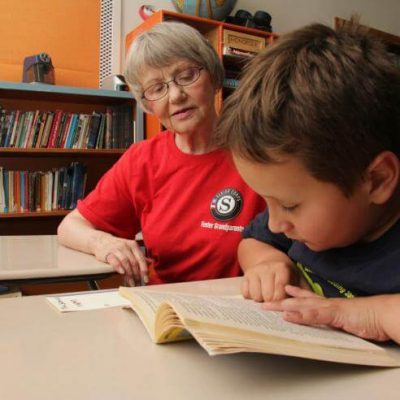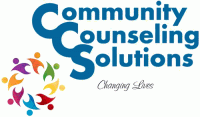 As a volunteer, retirement could give you the chance to work on a project or issue that is important to you – simply for the passion of it, rather than for a paycheck. Seniors have a unique set of skills and knowledge to offer as volunteers: a lifetime of experience can help you help others in a myriad of ways, from mentoring and tutoring younger generations, to providing career guidance, to offering companionship and care. Volunteerism isn’t just beneficial for those being helped – research shows that volunteering confers mental and physical health benefits for those doing the helping. It also fosters positive social and family relationships and contributes to a positive image of seniors as a healthy and vital part of our society.
As a volunteer, retirement could give you the chance to work on a project or issue that is important to you – simply for the passion of it, rather than for a paycheck. Seniors have a unique set of skills and knowledge to offer as volunteers: a lifetime of experience can help you help others in a myriad of ways, from mentoring and tutoring younger generations, to providing career guidance, to offering companionship and care. Volunteerism isn’t just beneficial for those being helped – research shows that volunteering confers mental and physical health benefits for those doing the helping. It also fosters positive social and family relationships and contributes to a positive image of seniors as a healthy and vital part of our society.
It has been well documented in many studies that folks who volunteer and enjoy contact with others are generally likely to remain healthy, both physically and mentally. Experts report that when you focus on someone other than yourself, it interrupts usual tension-producing patterns. Moods and emotions, like optimism, joy, and control over one’s fate, strengthen the immune system. It has been suggested by research that it can help. Giving back to the community definitely increases one’s sense of self-worth. And the largest benefit people get from volunteering is the satisfaction of incorporating service into their lives and making a difference in their community and country.
Community service and volunteerism are an investment in our community and the people who live in it. Volunteerism isn’t just beneficial for those being helped – research shows that volunteering confers mental and physical health benefits for those doing the helping. It also fosters positive social and family relationships and contributes to a positive image of seniors as a healthy and vital part of our society. Here are just a handful of reasons volunteer activity is beneficial (source: Senior Living website):
- It helps change the way people think about older adults. By using their talents and skills out in the world in a variety of ways, seniors demonstrate that they are active, involved and essential to a healthy community.
- It is good for mental health and can help prevent Alzheimer’s. The National Institute on Aging has reported that participating in social leisure activities and meaningful, productive activities such as volunteering may lower the risk of health problems in seniors, including dementia, as well as improving longevity. Being a volunteer can help keep the brain and the body active, which contributes to continuing cognitive health, according to numerous studies.
- It helps prevent senior isolation and depression. In addition to getting seniors out of the house and into the community, volunteering has a positive effect on psychological wellness. according to the Corporation for National and Community Service, those who volunteer experience greater life satisfaction, a sense of purpose and accomplishment, more stress resilience, and lower rates of depression.
- It promotes healthy physical activity. Volunteering can be good for keeping the body active, whether you’re building houses for Habitat for Humanity or walking around your favorite museum as a volunteer lecturer. Maintaining a healthy level of physical fitness as we age helps ward off disease, injury and even dementia.
Recent findings also indicate that volunteers who devote a “considerable” amount of time to volunteer activities are most likely to exhibit positive health outcomes, and a positive mental attitude.
Community Counseling Solutions sponsors two volunteer programs designed to utilize low-income seniors as volunteers. One is the Foster Grandparent Program (FGP), which is federally funded by the Corporation for National and Community Service (CNCS) and is a part of Senior Corps. It involves volunteers 55 years and older who want to help students in school who are struggling with reading to become better readers and better students. Students needing help are designated to volunteers by teachers at schools, and FGP volunteers tutor and mentor these at-risk youth, usually on a one-to-one basis. The Foster Grandparent Program is dedicated to helping children’s organizations through volunteers tutoring, mentoring and caring for youth with disadvantages or special needs. FGP Volunteers help in diverse settings, including schools, and child care centers. (Extra bonus for grandparents – “foster” and otherwise: a new study shows that both generations experience less depression when there’s a positive grandparent-grandchild relationship.)
The FGP Program here in Central and Eastern Oregon is constantly seeking volunteers who are at least 55, have a limited income (not more than $2023 per month for one person, $2743 for a household of 2 people), and are willing to spend 15 hours per week helping students. Volunteers must be in good health and pass an FBI background check. The FGP Program recruits volunteers throughout Eastern and Central Oregon. Volunteers receive orientation and training, and are placed in a school near their home. Benefits for volunteers include: a stipend of up to $475 per month ($2.65 per hour served) that is tax-free and does not count against any other federal or state program providing assistance; monthly in-service training; and travel reimbursement.
CCS also sponsors the Senior Companion Program (SCP), which is also federally funded and uses the same recruiting guidelines for potential volunteers as the FGP Program. The Senior Companion Program is also a Senior Corps program. This program is specifically about helping other seniors – particularly those elderly in the community who are homebound or frail and need help with day-to-day tasks or simply need company. SCP volunteers help seniors live independently, providing companionship through friendly visits to seniors identified by senior-serving agencies as needing assistance; respite care; and some personal care to seniors in their homes. SCP volunteers are recruited by CCS in Eastern Oregon only.
If either of these programs interest you, please give us a call:
FGP-SCP Program of Community Counseling Solutions
P.O. Box 1602 – 213 SW Emigrant Ave – Pendleton, OR 97801
Phone: 541-276-6074
E-mail: teresa.ohalloran@ccsemail.org

